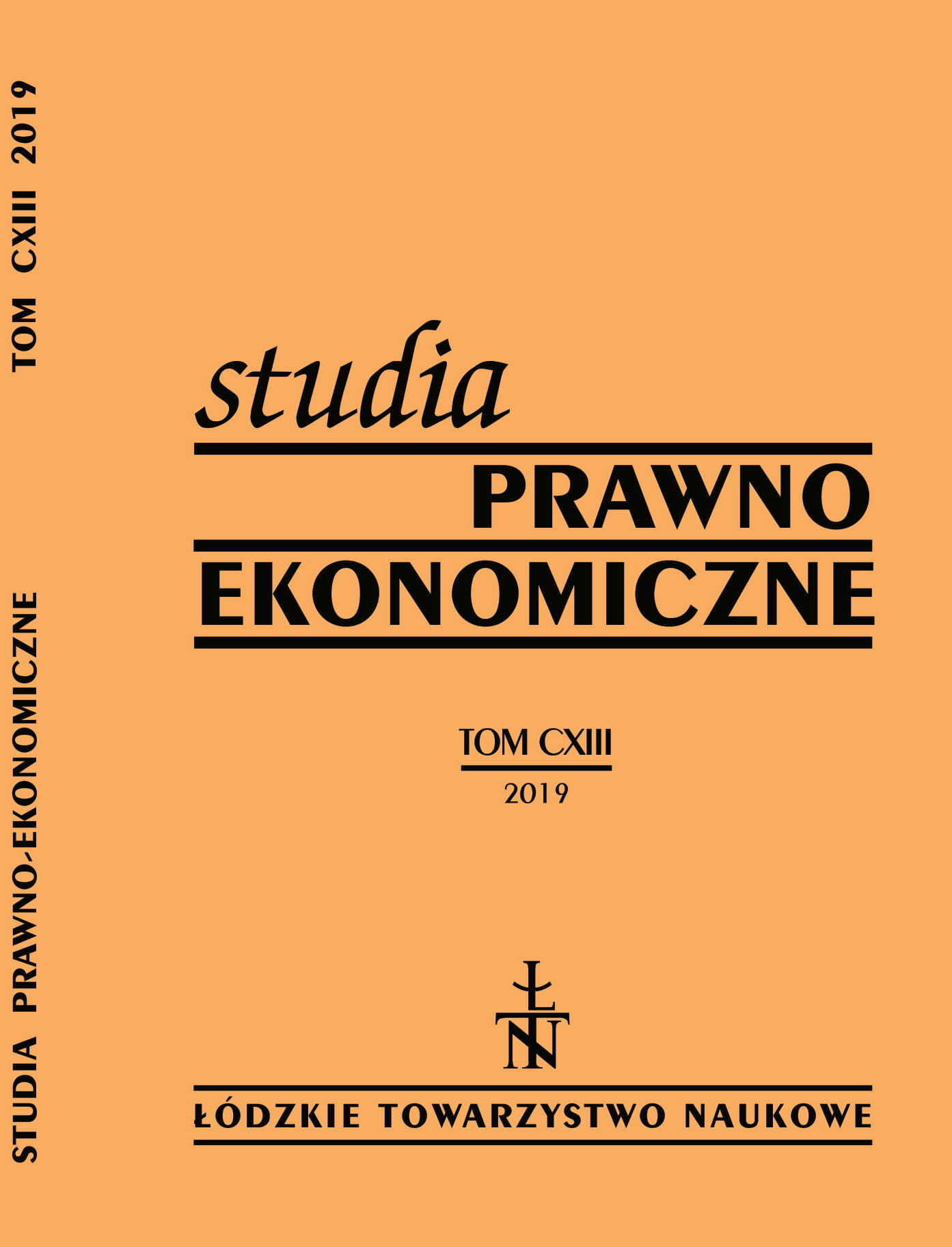The nonlinear impact of corruption on the level of economic development
DOI:
https://doi.org/10.26485/SPE/2019/113/16Keywords:
corruption, economic development, nonlinearityAbstract
Background: The problem of the impact of corruption on the economy has not been decisively resolved by scientists despite many scientific studies. Discrepancies occur even at the level of determining the direction of impact because the literature presens many arguments both for the negative and positive impact of corruption on economic development and entrepreneurship. The negative effects of corruption are associated with the inefficiency of the use of available resources, while the positive effects of corruption occur when corruption is a solution to another imperfection of the economy, e.g., bureaucracy, in which case, corruption promotes economic development.
Research purpose: The following article is a voice in the discussion. Based on an analysis of the literature, I built a hypothesis of the nonlinear nature of the impact of corruption on the level of economic development.
Methods: Verification of this hypothesis uses the properties of quadratic and logarithmic functions. A study on econometric panel data used selected variables – panel models with fixed-and random-effects were used for this purpose.
Conclusions: Studies have shown that a nonlinear relationship between the variables does actually occur. This is undoubtedly an added value of the research. The conclusions of the study explain the cause of the rapid economic development in the case of the corrupt, who began the fight against corruption. In the case of these countries, introducing fundamental changes in the oversight of public officials results in a significant reduction in corruption at the lowest level of government, thereby rapidly increasing small enterprise, which had been constrained by the cost of corruption. The gradual increase in the scale of anticorruption immediately brings smaller effects, and at the same time, it requires increased funding for the fight against corruption. In this case, the positive effects are visible in the long term.
References
Acemoglu Daron, Verdier Thierry, Property Rights, Corruption and the Allocation of Talent: A General Equilibrium Approach, Economic Journal, September, 1998/108 (450), s. 1381–403.
Ahmad Eatzaz, Muhammad Aman Ullah, Muhammad Irfanullah Arfeen, Does corruption affect economic growth?, Latin American Journal of Economics 2012/49/2, s. 277–305.
Anokhin Sergey, Schulze William, Entrepreneurship, innovation, and corruption, Journal of Business Venturing 2009/24/5, s. 465–476.
Dreher Axel, Thomas Herzfeld, The economic costs of corruption: A survey and new evidence, 2005.
Dzhumashev Ratbek, Corruption and growth: The role of governance, public spending and economic development, Economic Modelling 2014/37, s. 202–215.
Heckelman Jac, Powell Benjamin, Corruption and the Institutional Environment for Growth, Comparative Economic Studies, Palgrave Macmillan 2010/52 (3), s. 351–378.
Kojder Andrzej, Korupcja i poczucie moralne Polaków, w: Janusz Mariański (red.), Kondycja moralna społeczeństwa polskiego, Wydawnictwo WAM, Kraków 2002, s. 233–252.
Li Shaomin, Wu Jun, Why some countries thrive despite corruption: the role of trust in the corruption – efficiency relationship, Review of International Political Economy 2010/17/1, s. 129–154.
Mauro Paolo, Corruption and growth, Quarterly Journal of Economics 1995/110, s. 681–712.
Mo Pak Hung, Corruption and economic growth, Journal of Comparative Economics 2001/29, s. 66–79.
Mocan Naci, What determines corruption? International evidence from micro data, NBER Working Paper 2004/10460, Cambridge.
Pluskota Anna, Problem optymalnego poziomu korupcji na przykładzie wybranych państw Europy, Przedsiębiorczość i Zarządzanie 2016/17/9/1, s. 269–281.
http://data.worldbank.org/data-catalog/world-development-indicators; stan na 14.03.2017 r.
http://www.heritage.org/index/; stan na 14.03.2017 r.
https://www.transparency.org/cpi2015/; stan na 14.03.2017 r.







